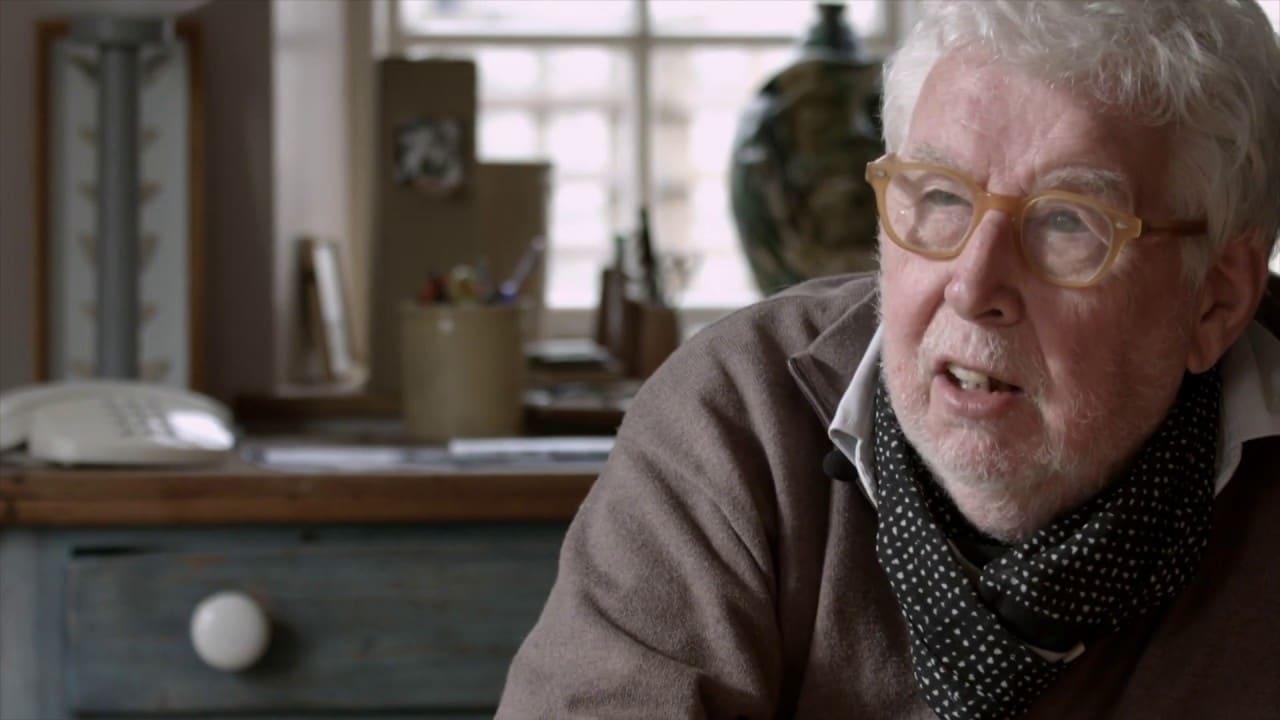Alberto Vilar ‘is penniless’
mainLawyers for the fallen philanthropist – still the biggest benefactor in opera history – are seeking debt relief, arguing before a judge that he is ‘broken, penniless, and destitute.’
Alberto, 80, went to jail for nine years for defrauding some of his investment clients.
Before his arrest, he gave away more than $200 million to the Met, Salzburg, Covent Garden, Mariinsky and other opera venues. Many owe him their seatback surtitles. As soon as he went to jail, the Met took down his name and others followed suit.
Today, say his lawyers, he is living on the dole and sleeping on a couch in a shred apartment.







These operahouses should at lest pay his rent (or give him lifetime free tickets)
Rent AND Lifetime Pass
Rental payment might require “creative accounting”, but lifetime free tickets sounds doable, cost free (when do they ever sell out?) and fair.
Sad ending to a controversial but generous character.
Perhaps some of the opera houses bear some responsibility by feeding a needy, sick ego with the pathological need for admiration to which he became addicted. What others saw as an over the top ego was in reality a sickly insecure self.
What can be done for him? Trump should issue a presidential pardon to bolster his frail ego and in recognition of his generosity.
Why would he issue a pardon? Vilar’s already done his time and I trust his ill gotten gains went in part to pay off those he defrauded. I wonder if his generosity and philanthropy were partly driven by guilt over what he was doing?
Quite the life lesson here.
I don’t feel sympathy for him as a convicted criminal who defrauded investors. But I think the opera companies which benefitted from his largesse and courted him at every turn treated him disgracefully. So he may not have completed his pledges but it is not as though the companies did not get a lot of money from him. Did they give all his money back? If so, then there might be a reason in their actions. If not he should get the credit he deserves.
When Alberto Vilar fall on difficult time Valery Georgiev gave him $500000 help. I personally told Valery G. my admiration for his generosity and compassion. VG’s from Caucas region-this why he was only one to support Alberto Vilar
What does coming from an ex-soviet state in the Caucasus have to do with anything?
People from Caucasus regions have big generous soul.
This is true!
My late husband Peter Lusk contributed $500,000 to our dear friend Alberto Vilar . He was treated shabbily.
I remember you. …Lusk. How do I remember you? I worked at Amerindo
Beautiful contribution! contribution means Gift!?
I don’t know about other companies, but the Met Opera retains his name on those projects (mainly productions) Mr. Vilar funded — Cosi, Cenerentola, Nozze, Traviata, Fidelio, Doctor Faust — several have been replaced with newer productions by this time. However, only those gifts that were actually fulfilled. The Grand Tier gift never materialized and therefore his name was removed.
Having met Alberto several times, he was rather pathetic and naive. I remember when he thought that donors should take a curtain call along with the stars, conductor, and director on the premiere of a new production.
I’d love to see the Busoni again. But we can’t even get Boheme presently.
Karma.
Ironic
I remember that one of the few who helped him in those days was Gergiev. Salzburg, the MET and all the others accepted Mr. Vilar’s money – lots of it – and should have helped him as he helped them. I didn’t like all the publicity around his name but I benefited indirectly from his generosity.
Problem is that we don’t know how much of it actually was Vilar’s money.
Why isn’t Gergiev paying Vilar’s rent? He greedily took all his dirty money for the Mariinsky, and no doubt some of it went into his pockets… Indeed, Vilar was very generous with other people’s money.
I have an odd memory concerning Alberto Vilar. Several years ago he was given an early release from prison on parole. I posted a comment here on SD about America’s need for public arts funding–I forget the context. Vilar responded to the comment and said that America did indeed need public arts funding. (I was struck, since he was such a famous private donor. )
Shortly afterwards, I think it might have even been the next day, he was re-arrested and sent back to prison. I forget the reasons, but was concerned that making controversial public statements about arts funding might have been part of what got him back in trouble, especially since his largesse as a donor was one of the reasons he couldn’t pay his clients. Vilar lost millions of dollars his clients had entrusted to him thus causing great harm.
But there’s another side to this. High status, influence, and important business and social connections come from large donations to the arts. The super rich donors do not want their privileged and sometimes *lucrative* status as big donors tainted. And the organizations do not want the attractions of donating weakened, so they hastened to distance themselves from someone who had generously supported them. After all, in our unusually free market, great wealth must work hard to appear legitimate.
Very convincing arguments about US arts organizations not wanting connections to dirty money.
On the other hand, I have a hard time believing that statements in support of public arts funding can get you in trouble in the US. I can’t see who is threatened by such statements. Besides, public arts funding increases presently stand negligible chances of being voted for at any political bodies – municipal, state or federal. Sad but true.
True, in normal situations such statements would be entirely innocuous, but in the particular circumstances of Vilar, I think it might have awakened resentments from victims and big donors that might have helped move a DA to lift his parole. I can’t remember the official reasons given.
It’s not only an issue of status or ego; I believe it’s an issue that once one starts something like this one feels that others depend on you and you cannot let them down; ie. that one has an irrevocable responsibility.
It reminds me of several scandals in the ultra Orthodox community in the US like the one involving the owner (I forget the name) of Aaron’s Best, at one time the major kosher meat producer and distributor in the US.
In general those involved in these scandals feel that they are under tremendous pressure to maintain their charitable contributions because so many others and their institutions and employees, such as yeshivas, or in this case, operas, are totally dependent for their survival on the largess of these big donors. In other words, because others have become so dependent on them they must keep it up.
That is why these donors are willing to take chances and engage in practices that are ethically and legally wrong or questionable.
What a bizarre (and preposterous) theory. Criminals are criminals, no matter what their motivation. Under tremendous pressure? To what, the public (in whose eyes he is a criminal)?
I’m not a psychiatrist, so I can’t and won’t diagnose Vilar’s problem. He continued to wave his largesse around months after he was indicted. For example, he offered Harvard a large gift (post scandal) to create an arts administration program based on his philosophy of philanthropy. The dean refused to see him.
What’s a “shred” apartment?
…a typo for “shared apartment?”
I am thinking there is an opera somewhere (or should be) based on his life…or a requiem… with the main character as a baritone, a chorus of opera house managers, and another chorus representing the investors…etc.
Great minds, Paul Capn. I think you’re onto something, an oera on Vilar’s life … I can see it now, “Die Spendensammlern” or “Les Collecteurs des Fonds”. I’m still working on the Italian and rounding up donors. It could be the greatest thing since “Das Rheingold” or Andre Gide’s “Les Faux Monneyeurs”.
He could commission a new opera called
“Sing a Song of Sing Sing”. Gergiev could conduct.
I still like Alberto. A lot of white collar criminals only got a slap on the wrist and none gave generously to the arts. To the rich, it’s more socially acceptable to give to cancer research, world hunger, etc. Arts to them are just entertainment.
Alberto Vilar was an acquaintance of mine. He treated me very fairly in our brief business dealings. If had the ability to significantly help him, I would.
Got it! Our working title for the Italian version of an opera about A;berto Vilar’s life can be “La finta del padrone”. or in French simply “Le Patron”. One donor is already lined up as soon as he is paroled. “La Musica o las Paroles” is another possibility. Nijinsky can write the libretto. John Botstlap for the music , of course.
I ran Alberto Vilar’s and Gary Tanaka’s hugely successful Amerindo Technology Fund’s business for 4 years until the dot com collapse destroyed 90% of the assets.
Alberto has a heart of gold but an ego larger than the Brooklyn Bridge. Many have been penalized far less for much greater malfeasance. Enough already.
He nailed the WinTel/Internet wave and I’m sure he’d catch the IA/crypto wave if he could.
Always a fan. KB
That’s îs not corect! Wrong date